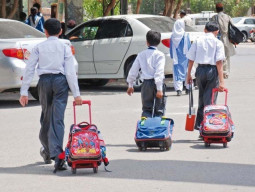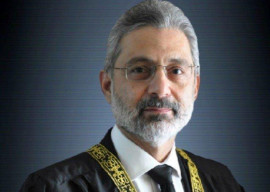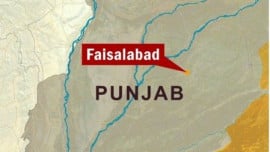
United States Coordinator for Economic and Development Assistance, Robin Raphel, raised a set of questions to be answered in the upcoming meeting of the Pakistan Development Forum, scheduled for mid-November in Islamabad. The conference agenda is to sell reconstruction plans to the donors.
She was speaking at a symposium on the role of donors in meeting development challenges in post-flood Pakistan.
“There is a longstanding concern over corruption and all the donors want to ensure transparency,” said Raphel, adding in the wake of global meltdown, mobilising international assistance would be challenging, hinting at donors’ fatigue who themselves are facing budget constraints after the 2008 financial crisis.
The worst-ever floods in the country’s history have inundated one-fifth of Pakistan and have affected one-tenth of the population. Preliminary estimates have put the damage at over $7 billion and the World Bank and the Asian Development Bank are carrying out a damage and needs assessment which will be completed this month.
Donors have shown reluctance in giving cash to Pakistan. So far against a revised United Nations appeal for $2 billion for early recovery, a mere $58 million have been disbursed. The World Bank and the Asian Development Bank have committed $1 billion and $2 billion respectively but this money too is not new rather they will reallocate their resources from ongoing projects.
Raphel said the donors need to know about a well-researched reconstruction plan with clarity in projects. She said the reconstruction plan needs to include basic policy guidelines on relocating the educational and health facilities.
“For donors it is essential to know who would be responsible for designing and implementing the projects and if it is provincial government then who at the provincial level is responsible and whether the authority has the capacity to perform the gigantic task,” she added.
Raphel said the donors were also concerned about overlapping and duplication of work and wanted a clear roadmap. She said there should also be clear boundary between the early recovery and reconstruction phase and in what way the reconstruction process would be monitored.
“We want answers to these questions in the development forum meeting,” she said, adding any development assistance should be well spent and should also go towards economic reforms.
Raphel said the donors wanted to be sure that their money would not be wasted and they also wanted Islamabad to mobilise its own resources.
The international donors are pressing Pakistan to push ahead with the tax reforms in order to generate additional revenues. However, the government is again planning to overburden existing taxpayers by levying a one-off flood surcharge instead of broadening the tax base.
“Pakistan is generous in philanthropic activities but the government needs revenues.” She said Pakistan should avoid untargeted subsidies and transfer more assets from the public to private sector.
“Flood surcharge is not a solution to the problem. The government should revive wealth tax to tax the land and large cars,” said Dr Hafeez Pasha, former finance minister.
Published in The Express Tribune ,October 8th, 2010.






































COMMENTS (2)
Comments are moderated and generally will be posted if they are on-topic and not abusive.
For more information, please see our Comments FAQ